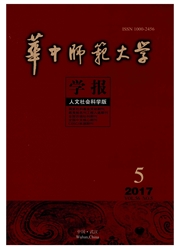

 中文摘要:
中文摘要:
对佛教和西方哲学有我-无我观念的比较是当前比较心灵哲学的热点和重点。佛教关于"自我"的思想中既包括具有解构主义色彩的无我的方面,同时又包括具有辩证色彩的有我的方面。作为当代西方心灵哲学分化的产物,比较心灵哲学用心灵哲学的名相概念解读和重构佛教的有我-无我观念。在比较视野下对有我-无我问题的研究发现:在佛教和西方心灵哲学中,自我被给予了大致相同的现象描述,而对被描述的这种自我的实在性,它们分别以各自的方式予以否定。因此,西方心灵哲学和佛教在自我问题上殊途同归,都坚持主张"无我",认为"自我"仅仅是人们的构造和幻象。
 英文摘要:
英文摘要:
Both Buddhism and western philosophy of mind concern with the problem of self and no-self.As a product of contemporary western philosophy of mind,comparative philosophy of mind interpreted and reconstructed the idea of self and no-self in Buddhism.By studying the problem of self and no-self in the context of comparative philosophy of mind,it is found that self is phenomenologically described as the same thing both in Buddhism and western philosophy of mind,and that they have denied objective reality to this self with their respective methods.Therefore,Buddhism and western philosophy of mind draw the same conclusion by different routes with respect to problem of self,and they both maintain that there is "no-self" by casting the self as constructed idea and illusion.Comparing the idea of self and no-self between Buddhism and western philosophy is an important topic,which shows the basic function of comparative philosophy,ie.,broadening the horizon of research of two sides and enhancing their own truth knowledge.
 同期刊论文项目
同期刊论文项目
 同项目期刊论文
同项目期刊论文
 期刊信息
期刊信息
